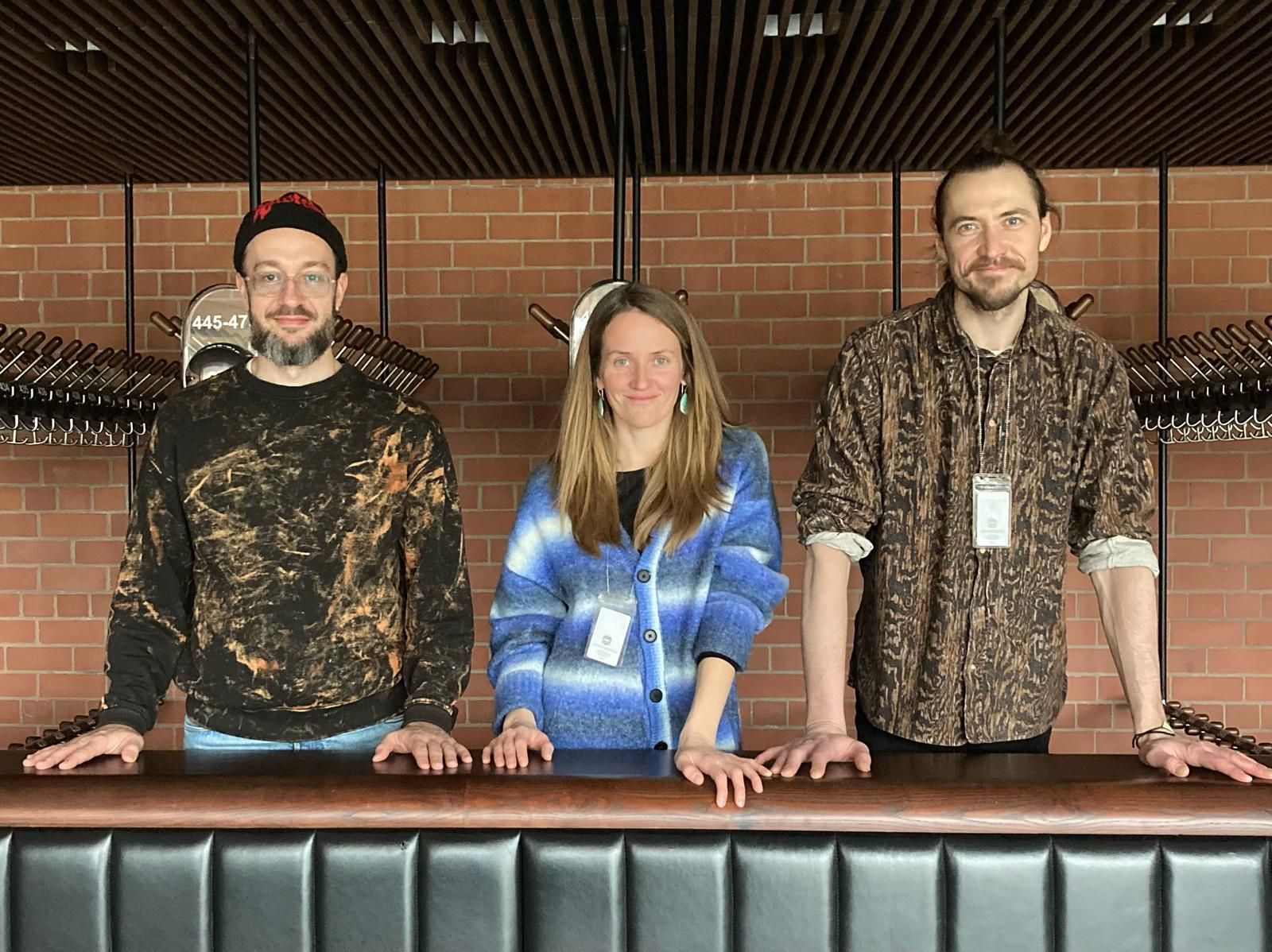A theater is a living organism. It inhales light and sound, exhales applause and silence, pulses with movement, thinks with scripts and scores and circulates meaning through its corridors and tribunes. It is a body with an anatomy of spaces, each part playing a role in its survival, each function dependent on the others. And like every other organism, theater is susceptible to host parasites. This is the premise for Kadri Noormets´new work Blind Date: what if we parasite a theater?
During our mission in Ugala Theater, we became parasites. We do not compete; we
infiltrate. We attach ourselves to the theater, not to spoil it, but to claim that there is a hiddenpotential in it: what happens outside the stage is at least as interesting as the piece that is being played. So we realized that to act like a parasite we had to use what is already there, without intervening on it, our material had to be born from what the building of the theatre provides to us. Our main strategy to find material was to tune our attention and to simply observe any single space and situation waiting for “the good news to reveal themselves or to send us a sign”. Our work depends entirely on what happens on the host organism: its conventional structures, its rituals, its predictable situations before, during and after the show, its program with its directors, actors and technical crew, they all became our nutrients. We extract and digest what the host provides. Without it, our work does not exist.
A theater is designed for visibility. Like a temple, the architecture is at the service of revelation, every seat calibrated for the best view, every movement choreographed for the eyes of the audience. But what happens in the spaces not meant for viewing? What exists behind the heavy curtains outside the stage lights, in the corridors, under the stage mechanics, in the storage rooms where hundreds of costumes and props from past performances rest in peace in the darkness, in the cellar where the ventilation tunnels lead to flooded forgotten corridors with condensed moisture?
Etymologically, “theater” means “a place for viewing”. And most of the time the viewing is directed towards the stage. We realized that there are at least two parameters to play with: either you change what you see or you change the place from where you see. In Blind Date we do both, we turn the theater into “a place for viewing what was not meant to be seen”and also we relocated “the place from where we see”, or, in other words, “to occupy a place in the theater that was not meant to be occupied as an opportunity to have an alternative view of a piece.”
During our mission in Ugala Theater, we do and experience theater from the parasite’s point of view offering to our audience the privileged experience of slipping through the cracks of conventional theater. Our audience arrives at the same time as the regular audience but it is not placed where they are expected to be. The regular audience sees what is intended to be seen, while our audience sees what was never meant to be seen. We move when the others are still, we leave when the others enter, we enter when they leave. While the conventional audience sits obediently in rows, fixed within the spectacle, we slip through passageways, navigating the living skeleton of the theater. We hear the actors speaking on the other side of the wall, unaware of our presence. We infiltrate in the darkness under the stage, our headlamps flickering as feet step above us. We render visible the negative spaces of the theater experience, we observe the blind spots, the silence behind the sound. And we realize that this, too, is theater: an unseen performance, an accidental choreography, a hidden network of labor, spaces and presence. And in these hidden spaces, something shifts. The experience of being in a theater transforms, not as a spectator, but as an intruder, a detective, a ghost. To be where you are not supposed to be, to move like a thief in the walls of an institution, is a perversion, a delicious mischief.
